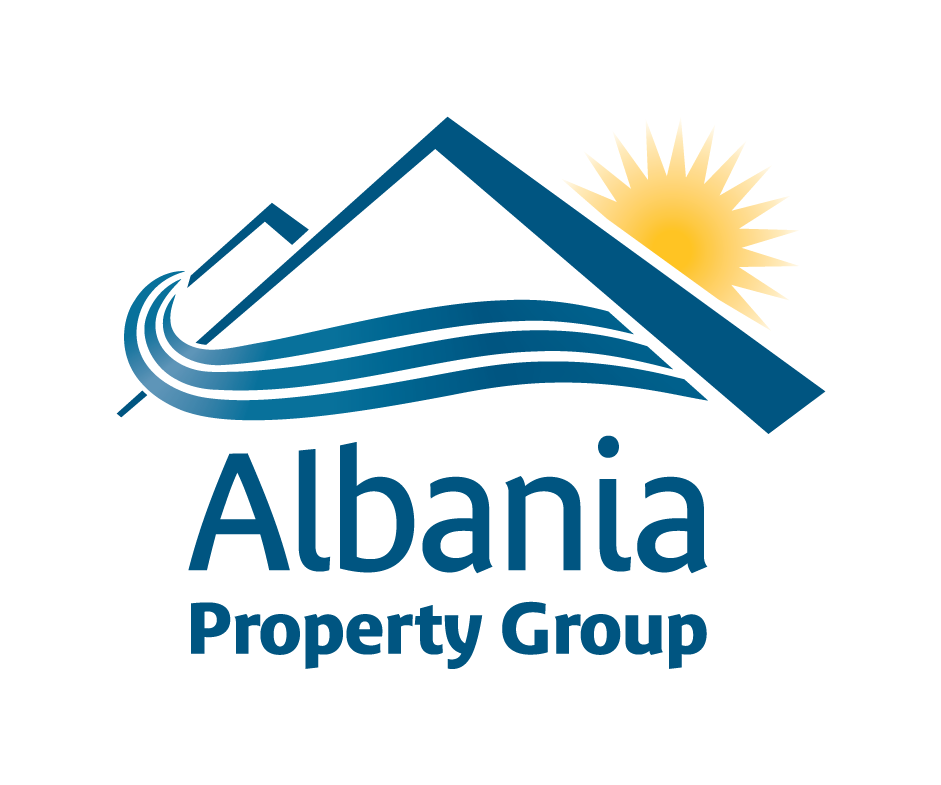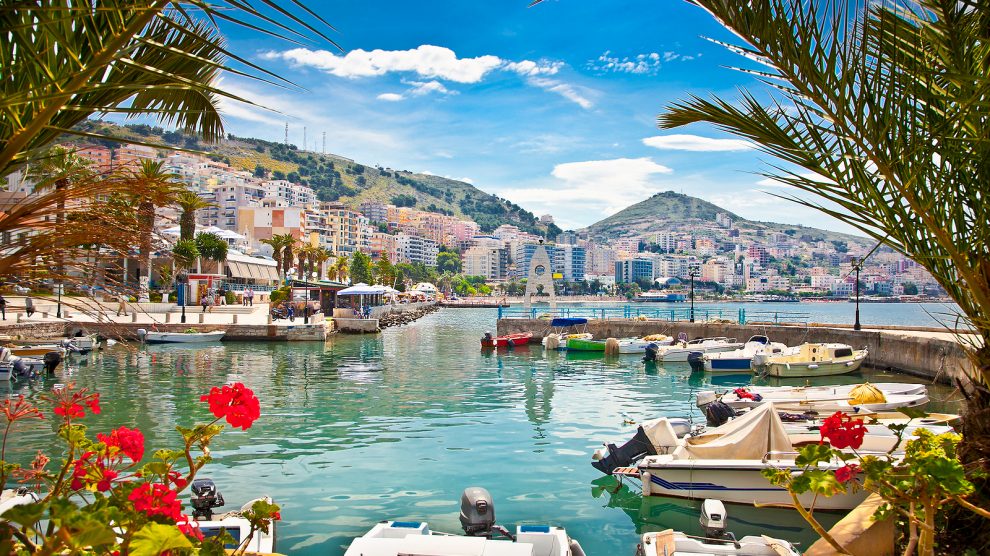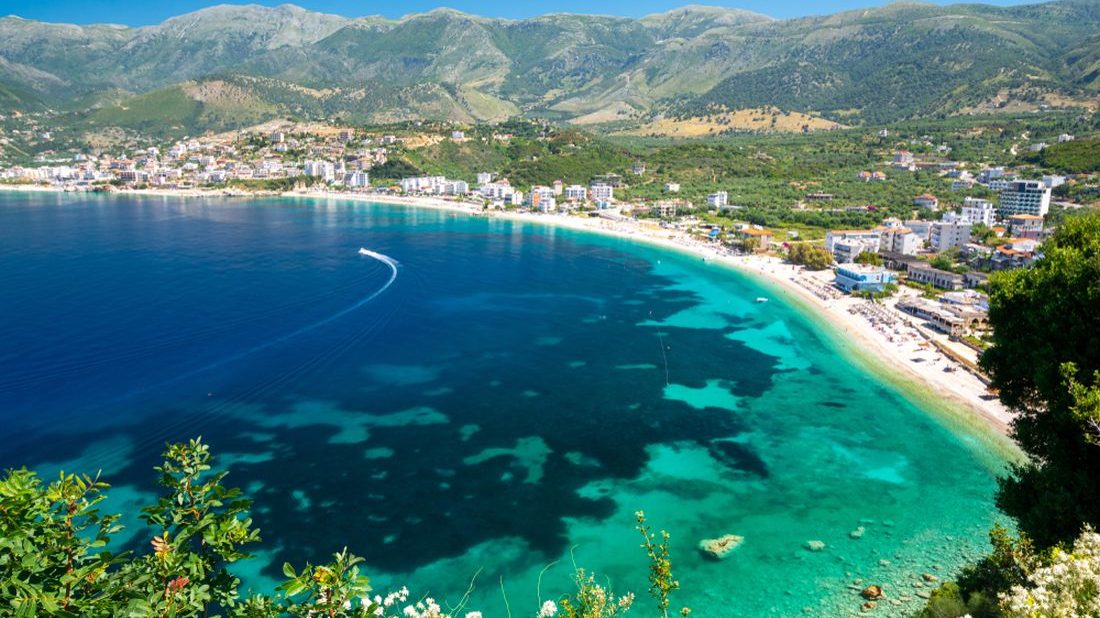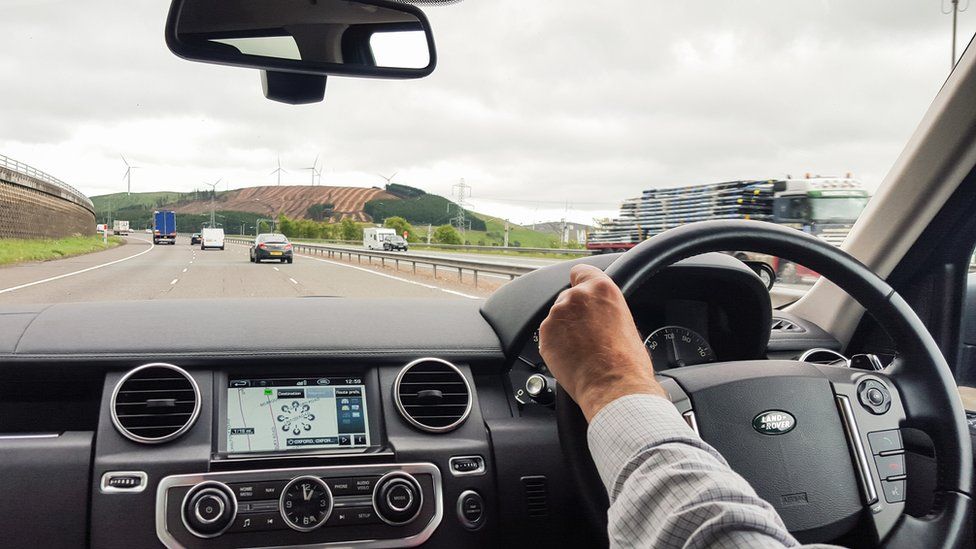

News
Forget the French Riviera, the Albanian coast is the next big thing
The Albanian coast offers stunning views, crystal clear waters, and some of the best value for money property deals anywhere in the Mediterranean. No wonder buyers are flocking to the country from across the world.
According to a Colliers Albania report from April 2021, while the country’s property market experienced a significant decline during the initial outbreak of the Covid-19 pandemic last year, it swiftly bounded back: interest has since risen to new heights with the relaxation of coronavirus restrictions.
In the first quarter of 2021, the Albanian Institute of Statistics, Instat, said that the country registered GDP growth of 5.53 per cent, of which 1.09 per cent was attributed to construction and 0.58 per cent to real estate activity.
By far the most popular region of Albania for both local and international investors, competing with the capital Tirana, is the Albanian Riviera.
“There has been a very strong demand from buyers throughout 2021,” Ilir Konomi, managing director of the Albania Property Group, tells Emerging Europe. “We have been selling more and more properties on the Albanian Riviera to foreign clients, especially since February.”
The Albania Riviera is that part of country’s coastline situated along the Ionian Sea, described by Arber Brahaj of RealEstate.al as “a stretch of more than 100 kilometres of rock and crystal-clear water.”
According to Brahaj, amongst the most popular settlements along the riviera are the towns of Vlorë, Himarë and Sarandë, as well as the villages of Radhimë, Palasë, Dhërmi and Jala.
The appeal of the Albanian Riviera
“I think what makes the Albanian Riviera special is the combination of a picturesque Mediterranean landscape and the Ionian Sea, the beaches, the cultural background (traditional settlements and monuments), and the fact that until recently there was an abundance of undeveloped coastal land, which is scarce in north and central coastal Albania where construction has been intense,” says Loukas Triantis of the National Technical University of Athens, who has carried out research on urban and regional planning in the Himarë area.
Konomi believes that part of what makes property on the Riviera increasingly popular is the availability of typical Mediterranean scenery combined with prices not found elsewhere in this part of Europe.
“The prices are still affordable, between 1,000 and 1,400 euros per square metre for properties on the beachfront with a nice sea view. You can find these prices in the resorts at Lalzit Bay, Sarandë and Vlorë,” he explains.
“The exception is Dhërmi, the heart of the Riviera. Apartment prices there are approximately 2,000 euros per square metre, and around 3,000 euros [per square metre] for villas,” Konomi adds.
Bahaj says that Albanians consider Dhërmi to be the best beach in the country, and judging by the thousands of positive reviews on internet forums, foreigners seem to agree.
“Dhërmi is an old village, situated in the mountains overlooking the coastline, the rocks and thee sea,” he explains.
Despite the reasonable prices, the Albanian Rivera nevertheless has its fair share of luxury property, according to Bahaj.
“One of most famous properties near the village of Ksamil is the Kep Merli Residence, where popular singer Dua Lipa took her vacation earlier this month. Villas start at one million euros and reach up to four million euros, including private jetties for boats. For short term visitors, prices range from 900 to 4,000 euros per night,” says Bahaj.
Who’s buying?
Both Brahaj and Konomi say that their clients come from a variety of backgrounds, but note that different areas along the Riviera are popular with different groups of buyers.
“Albanian emigrants from Western and Northern Europe have been buying mainly in the area of Lalzit Bay and Sarandë, while the Ionian coast between Vlorë and Sarandë has been doing very well with Albanians from the capital, Kosovo, as well as Albanian emigrants,” Konomi says.
Then there are foreigners.
“In the Lalzit Bay area, while Albanian emigrants make up close to 90 per cent of all sales, we have also had Polish, Austrian, and few Czech clients. Sarandë is quite the opposite, 90 per cent buyers there are from countries such as Poland, Germany, Czechia, and the Nordic countries, including Sweden and Norway,” he adds.
Bahaj says that part of Sarandë’s attraction for foreigners is its proximity to the Greek island of Corfu, just a 40 minute ferry ride away.
“Many Greek agencies offer a tour to the city,” explains Bahaj, adding that, “much of the city is an archaeological site, with Butrint National Park just the south a UNESCO World Heritage site.”
Brahaj says that RealEstate.al have also made a number of sales at the Green Coast Residence in Palasë village in the Himarë region since the start of 2020, despite the pandemic.
“We have seen big investments in apartments, semi-detached villas and individual villas at prices around 1,450 to 2,100 euros per square metre. Buyers are mostly Albanians who live in Albania, and a few foreigners. We think that the main reason most of our buyers have been from Albania is that most of the properties were sold during the Covid-19 lockdown last year,” he says.
Konomi argues that Albania needs more foreign buyers in order to continue its upwards trend.
“Taking in consideration the fact that the presence of foreigners is still low, I believe that their numbers will grow by around five to 10 per cent over the next three to four years,” he says.
Better infrastructure is also likely to give the region a boost, says Brahaj.
“With the construction of two new airports in the cities of Sarandë and Vlorë, and a new road that will connect Vlorë with the rest of the Riviera under construction, allowing drivers to avoid the Llogara mountain, interest in the Albanian Riviera is expected to rise a lot in the near future.”
https://emerging-europe.com/business/forget-the-french-riviera-the-albanian-coast-is-the-next-big-thing/
Czech media writes about Albania. Where to buy an apartment by the sea?
The Czechs discovered a new Croatia. Where to buy an apartment by the sea?
Czechs love Croatia and vice versa. But mass raids on the Adriatic coast have caused many people to look for other quieter destinations. Albania, which is currently experiencing a huge boom in infrastructure, tourism and gastronomy, is gaining attention, with aging tourism being one of the pillars of the local economy.
We tend to look at Albania as a neglected island in the Balkans. Despite past prejudices, Albania is now a safe and hassle-free country. Thanks to accession talks with the EU, Albania is rapidly raising the standard of service, while maintaining very favorable prices. The hospitality of the local people, monuments referring to the Roman and Ottoman history of the country and Mediterranean cuisine suggest that Albania can offer the same even more as Croatia's favorite Croatia.
Improvement of conditions for tourism has attracted more enterprising Czechs, Albanian real estate agencies are already seeing increased interest in demand for investment real estate. Real estate prices have risen 30 percent in the last three years and further growth is expected.
The relocation of private investors from overcrowded Croatia to the south is a long-term trend that has had a positive effect on the Montenegrin coast, which has developed tourism thanks to EU support. This resulted in rising prices for real estate and apartments to prices similar to those in Croatia - an average of 2,500 euros per square meter.
Today's prices in Albania on the coast are around 1000 EUR per square meter. This is a very favorable price for a new apartment in Durrés (Durres), where a direct line from Prague flies. In the next five years, we expect an appreciation of EUR 2,100–2200 per square meter, ”says Daniel Mikulka for Successful Investments.
The interest of tourists was also supported by the expansion of air connections with Europe, including low-cost flights from Prague, Berlin and Vienna with a frequency of 2-3 times a week.
Durres on the Adriatic coast, with its almost 3,000-year-old history, has ambitions to become the capital of Albanian tourism. The historical part of the city will be transformed into a tourist zone with a modern promenade, a passenger transport terminal and a mooring for private yachts.
The offer of apartments is, for example, wide in Drač. It is a new building in a modern neighborhood close to the beach and promenade full of shops, restaurants, cafes, stalls and bars.
“From the airport you are on the beach in half an hour. You go on holiday to a place that is yours. When you are not heading to the sea, but tourists are flying there, you can rent an apartment, "describes Daniel Mikulka.
THE FUTURE EUROPEAN TIGER?
Economic indicators predict Albania as another promising destination for trade development.
The Albanian economy is currently growing at a rate of 4.4 percent of GDP year on year. One of the biggest drivers of growth is tourism, which accounts for 14 percent of the Albanian economy. The country has opened accession talks with the EU, and important reforms are under way to revitalize growth and create jobs. In Albania, the Swiss and the Dutch invest the most. Of the Czech companies, the Czech company Forschner does business in Albania, and Preciosa, Budějovický Budvar, Paramo and ŠKODA are also represented here.
https://www.living.cz/cesi-objevili-nove-chorvatsko-u-more-koupite-apartman-za-cenu-chaty-u-rybnika/
Self-driving cars to be allowed on UK roads this year
Self-driving vehicles could be allowed on UK roads by the end of this year, the government has said.
The Department for Transport said automated lane-keeping systems (ALKS) would be the first type of hands-free driving legalised.
The technology controls the position and speed of a car in a single lane but only up to speeds of 37mph (60km/h)
But insurers have warned the government's definition of ALKS as 'self-driving' is misleading.
Previously, the government had said these new laws would be in place by spring this year and told the BBC there was no delay in its suggested timeframes.
Hands-free
Following a consultation last year, the government has now said that vehicles with ALKS technology can be legally defined as self-driving, “as long as they receive GB type approval and that there is no evidence to challenge the vehicle’s ability to self-drive.”
The government confirmed that drivers will not be required to monitor the road or keep their hands on the wheel when the vehicle is driving itself.
But the driver will need to stay alert and be able take over when requested by the system within 10 seconds.
If a driver fails to respond, the vehicle will automatically put on its hazard lights to warn nearby vehicles, slow down and eventually stop.
The Highway Code is now consulting on what rules will be put into new laws to make sure the technology is safely used.
“This is a major step for the safe use of self-driving vehicles in the UK, making future journeys greener, easier and more reliable while also helping the nation to build back better,” said Transport Minister Rachel Maclean.
“But we must ensure that this exciting new tech is deployed safely, which is why we are consulting on what the rules to enable this should look like.”
Human Error
The technology could improve road safety by reducing human error, the Society of Motor Manufacturers and Traders said.
“Automated driving systems could prevent 47,000 serious accidents and save 3,900 lives over the next decade through their ability to reduce the single largest cause of road accidents – human error,” said chief executive Mike Hawes.
“Technologies such as Automated Lane Keeping Systems will pave the way for higher levels of automation in future – and these advances will unleash Britain’s potential to be a world leader in the development and use of these technologies, creating essential jobs while ensuring our roads remain among the safest on the planet.”
Autopilot
Tesla's so-called "Autopilot" uses lane technology similar to ALKS. It is considered "level two" on the five defined levels of self-driving cars.
The next step - level three - would not need the driver's attention at all times, and in theory, the driver could do other things such as check email or even watch a movie - until the car prompts them to take over again. This is would include ALKS.
However, there have been several incidents involving this technology when drivers did not pay enough attention to the road.
In 2018, a Nottingham resident was banned from driving after climbing into the passenger seat of his Tesla on the motorway, letting it do the driving.
A fatal crash in the United States was caused, in part, by the driver playing a video game while leaving his car in "Autopilot" mode, before it drove into a concrete barrier.
A recent report found that the feature can be “easily tricked” into operating without a driver, adding to the mounting criticisms over the marketing of these features as "self-driving", and whether that is misleading to customers.
'Tragic deaths'
Thatcham Research, which conducts safety tests for motor insurers, urged caution over defining ALKS as 'self-driving', as the government has done.
"ALKS as currently proposed by the government are not automated," said Matthew Avery, director of research at Thatcham Research. "They are assisted driving systems as they rely on the driver to take back control.
"Aside from the lack of technical capabilities, by calling ALKS automated our concern also is that the UK government is contributing to the confusion and frequent misuse of assisted driving systems that have unfortunately already led to many tragic deaths.
"Consumers will expect the car to do the job of a driver, which current models can't do."
https://www.bbc.com/news/technology-56906145










